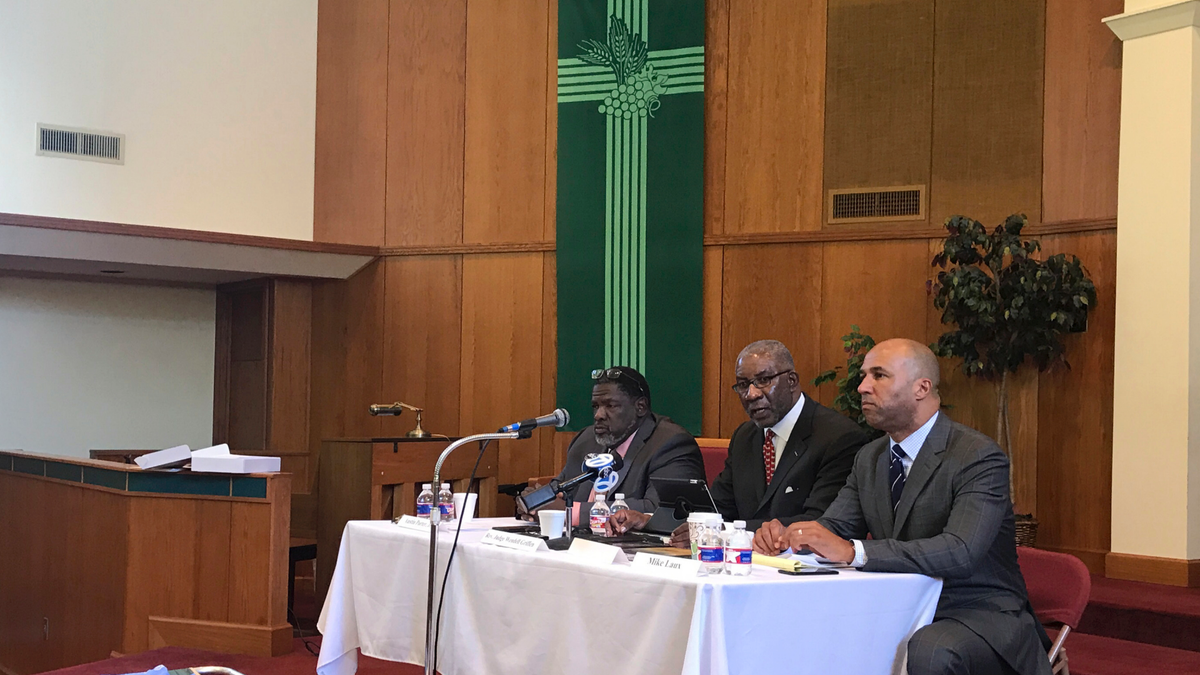
LITTLE ROCK, Ark. – An Arkansas judge charged with breaking judicial ethics rules for participating in an anti-death penalty demonstration the same day he blocked the state from using an execution drug said Monday that a disciplinary panel should dismiss its case against him.
Pulaski County Circuit Judge Wendell Griffen's attorneys renewed their May 2017 request for the Judicial Discipline and Disability Commission to dismiss the complaint against the judge, days after a three-member panel of the commission filed formal charges against him.
Griffen was photographed on a cot outside the governor's mansion last year wearing an anti-death penalty button and surrounded by people holding signs opposing executions. Earlier that day, Griffen blocked the state from using a lethal injection drug over claims the company had been misled by the state.
Though the image appeared to mimic a condemned inmate awaiting lethal injection, Griffen, who is also a Baptist pastor, has said he was portraying Jesus and participating in a prayer vigil. Griffen's attorneys asked the panel for a formal public hearing on his request to dismiss the case. They argued the case violates Griffen's constitutional rights and a 2015 state religious objections law.
"As previously stated, the JDDC complaint is more than merely misguided," the attorneys said in Monday's filing. "It demonstrates an irrational and unprecedented hostility toward Judge Griffen and to controlling legal authorities about freedom of speech, freedom of peaceful assembly, freedom of religion, and freedom of religious expression enshrined in the First Amendment and protected by the Arkansas Religious Freedom Restoration Act."
Rachel Michel, the special counsel appointed to handle Griffen's case, did not immediately return a call seeking comment Monday afternoon. The panel's charges go before the full nine-member commission, which can recommend the state Supreme Court suspend or remove Griffen from the bench if they rule he violated judicial rules. The commission could also issue a public admonishment, reprimand or censure the judge. A hearing before the panel has not been scheduled yet.
Griffen's attorneys have also asked the commission to release documents related to the case, including any emails, voice mails or other communication from people who contacted the panel about making a complaint against the judge.
Days after the demonstration, the state Supreme Court removed Griffen from the drug case and disqualified him from handling any execution-related cases. The state's seven Supreme Court justices are appealing a federal judge's ruling that allows Griffen's lawsuit against them over the disqualification to move forward.
___
Follow Andrew DeMillo on Twitter at www.twitter.com/ademillo

